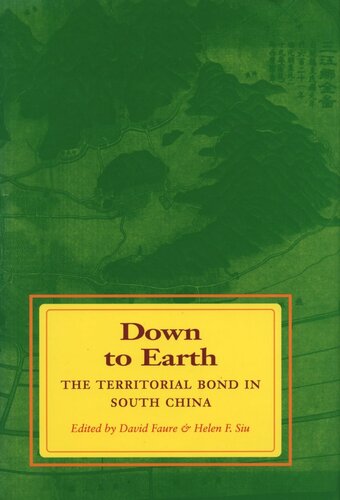

Most ebook files are in PDF format, so you can easily read them using various software such as Foxit Reader or directly on the Google Chrome browser.
Some ebook files are released by publishers in other formats such as .awz, .mobi, .epub, .fb2, etc. You may need to install specific software to read these formats on mobile/PC, such as Calibre.
Please read the tutorial at this link: https://ebookbell.com/faq
We offer FREE conversion to the popular formats you request; however, this may take some time. Therefore, right after payment, please email us, and we will try to provide the service as quickly as possible.
For some exceptional file formats or broken links (if any), please refrain from opening any disputes. Instead, email us first, and we will try to assist within a maximum of 6 hours.
EbookBell Team

4.0
46 reviewsBringing local history to bear on major questions in Chinese social history and anthropology, this volume comprises a series of historical and ethnographic studies of the Pearl River Delta from late imperial times through the 1940's. The delta is a rich and socially complex area of south China, and the contributors - scholars from the People's Republic of China, Hong Kong, the United Kingdom, and the United States - have long-standing ties to the region. The contributors argue that local society in the Delta was integrated into the Chinese state through a series of changes that involved constant redefinition of lineages, territories, and ethnic identities. The emergence of lineages in the Ming and Qing dynasties, the deployment of deities in local alliances, and the shrewd use of ethnic labels provided terms for a discourse that reified the criteria for membership in Chinese local society. The ideology produced by these developments continued to serve as the norm for the legitimization of power in local society through the Republican period. In reconstructing the 'civilizing process' in the Delta, whereby local inhabitants, both elites and commoners, used symbolic and instrumental means to become part of Chinese culture and polity, the book confronts a central question in history and anthropology: How do we conceptualize the historical development of a state agrarian society with hierarchies of power and authority, attachment to which is both unifying and diversifying?